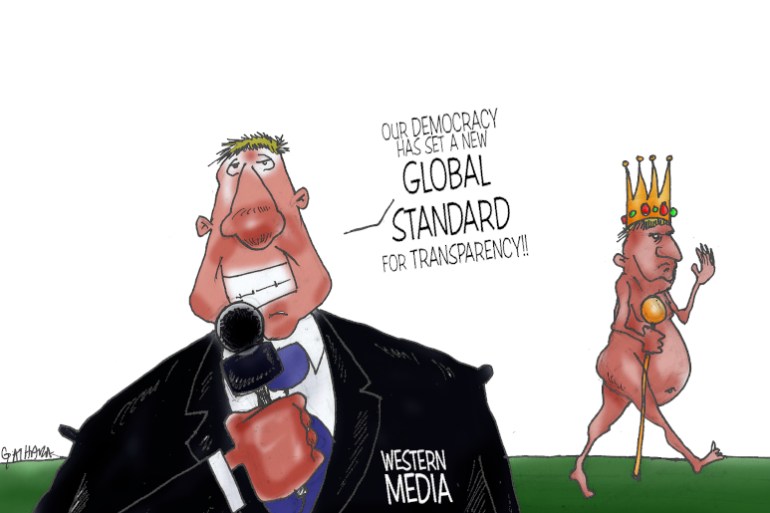by PATRICK GATHARA

As Africans we should realise that it is our duty to stand with the people of Britain and the US, and to support their aspirations for democracy.
Democracy can be a confusing thing. On the Mid-Northern British archipelago, a small group of reclusive, flavour-starved and disease-ridden islands off the coast of sub-Scandinavian Europe, the authoritarian-leaning Prime Minister, Boris Johnson, is clinging to power despite “resigning”. After a revolt by ruling party legislators, led by ethnic minority Members of Parliament, Johnson has formed a transitional administration which includes many of the same people who are trying to topple him. While hanging on to office, Johnson has promised not to do much work, not to introduce any new policies, and seems set to actually spend much of his time planning his wedding.
This is not what most of us imagine rule of the people, by the people and for the people, is meant to look like. A country with an imaginary constitution and no mechanism to remove a sitting ruler would, if located in less inhospitable parts of the globe, probably attract other appellations from the international press. When it is up to a central committee of the ruling Conservative Party to decide on rules for appointing the next leader through a vote by party members, it starts to sound like the system practised by countries like China, that most would agree, are not exactly democratic.
Add to that Johnson’s three-year reign of error that has left nearly 300,000 people dead, his ineptitude that has tanked its economy, his populist antics, the corruption and criminality that flourished under his rule, as well as his concerted push to undermine political freedoms such as the freedom to protest, and it starts to resemble another group of Central American and Caribbean countries that are usually identified by yellow fruit.
The way language is deployed by the world’s media to segment the world has always been fascinating to me. In her 2011 book, Professional Communication: Legal and Ethical Issues, former lawyer and journalist, Professor Rhonda Breit, notes that journalists “engage in boundary work and community construction” that distinguishes between the society they are accountable to, and “the other”. Language is one of the tools that journalists use to make this distinction. There are phrases and descriptions, usually benign and familiar, that are reserved for the societies they consider themselves a part of, while others, usually derogatory and alienating, are appointed for those they consider to be different.
Whether it is describing disasters, natural or man-made, or political events, the framing chosen many times reflects these biases and prejudices. If the events in the tribally divided United Kingdom were happening in Africa, for example, one would expect to be regaled with tales of tribal tensions, predictions of violence and descriptions of the natural resources that make these countries worthy of attention.
Al Jazeera for more
